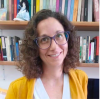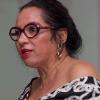
Research Topics
1. Social Processes, Identities and Representations of the Rural World
Established in 1985 under the name “Agriculture and Agrarian Question” and reformulated with the current name in 2001, this area focuses on the study of social processes in progress in the rural world, their representations, and the agrarian roots in social thought. It also addresses the study of the agrarian question and the problem of rural populations and traditional rural peoples, their diversity, and their transformations. The Line of Research is interested in its forms of sociability, institutions, mobilizations, identities, uses, and ways of appropriating land and other natural resources. It should be noted that this area maintains a rich dialogue and partnership with university research centers and nuclei, in particular the Center for Rural Studies (CERES), the Center for Environmental Studies and Research (NEPAM), and the Center for Studies and Research in Indigenous Ethnology (CEPEI).
The courses and ongoing research are organized around the following topics:
· Identity and territorial processes
· Modes of production and appropriation of the territory
· Social production of demands and rights
· State and public policies
· Rural social movements
· Agrarian question and social sciences
· Migration and displacement in the rural world
· Environmental issues and the rural world
Associated Center or Nucleus:
Center for Rural Studies – CERES
Docentes Permanentes

José Maurício Paiva Andion Arruti

Lucia da Costa Ferreira

Marilda Aparecida de Menezes

Nashieli Cecília Rangel Loera

Thais Tartalha Do Nascimento Lombardi

Vanilde Ferreira de Souza Esquerdo
Docentes Colaboradores

Mauro William Barbosa de Almeida

Sonia Maria P. P. Bergamasco
2. Gender Studies
Created in 1993, as the Family and Gender Relations area, adopting, from 2004, the name Gender Studies, this line of research is dedicated to understanding the various aspects of relations involving gender in social life. The line seeks to provide instruments for the theoretical and methodological refinement of research in this field, from an interdisciplinary perspective, aiming at providing student education and the constitution of research groups. The line has focused its efforts on making the articulations between gender and other differentiation categories intelligible, also considering the interfaces between gender and various manifestations present in the social world.
The courses and ongoing research are organized around the following topics:
· Corporalities, Science, and Technology;
· Sexuality: eroticism, pornography, sex markets, sex work, sexual diversity, sexual policies, reproductive technologies;
· Life course, generations, and care;
· Cultural production: artistic production; media;
· Violence; legal practices; penitentiary institutions; human trafficking;
· Family relationships: conjugality; parenting; kinship;
· Intimacy; loving relationships;
· Feminism, arenas of agency and political action;
· Work relationships;
· Migration, mobility and transnationality;
· State, Human Rights, Truth Commission and Political Missing Persons.
It should be noted that this line maintains a rich dialogue and partnership with university research centers and nuclei, in particular the PAGU Gender Studies Center (PAGU/UNICAMP).
Docentes Permanentes

Adriana Piscitelli

Ângela Maria Carneiro Araújo

Isadora Lins França

Joice Melo Vieira

Karla Adriana Martins Bessa

Maria Filomena Gregori

Maria Lygia Quartim de Moraes

Marko Synésio A Monteiro

Natália Corazza Padovani

Regina Facchini
Docentes Colaboradores

Guita Grin Debert

Maria Conceição da Costa
3. Labor, Politics and Society
The Labor, Politics and Society line of research was established in 2001, bringing together professors from the departments of Anthropology, Political Science, and Sociology. It originates from the expansion and reformulation of the former area of Labor and Unionism, created in 1988. Reflecting its pluralist and interdisciplinary vocation, this line integrates a broad spectrum of theoretical interests and methodological approaches from the Social Sciences, without neglecting the dialogue with other relevant subjects. The area emphasizes the need for a dynamic articulation between empirical research and theoretical reflection, either in the form of a theory anchored in research or in the form of theoretically informed research.
The area features 4 thematic axes:
· Forms of collective action;
· Forms of work manifestation;
· Labor and social order;
· Theoretical axes.
It is important to mention that this area maintains a rich dialogue and partnership with university research centers and nuclei, in particular CEMARX (Center for Marxist Studies) and PAGU (Center for Gender Studies), whose professors are associated.
Docentes Permanentes

Ângela Maria Carneiro Araújo

Giovanni Antonio Pinto Alves

José Dari Krein

Liliana Rolfsen Petrilli Segnini

Magda Barros Biavaschi

Márcia de Paula Leite

Marilane Oliveira Teixeira
Docentes Colaboradores

José Roberto Montes Heloani

Liliane Bordignon de Souza
4. Modes of knowledge and their expressions
Established in 1985 – then with the name Intellectual Itineraries and Ethnography of Knowledge – this line of research has been dedicated to training and research with scientific and non-scientific knowledge, from the standpoint of its practitioners, the temporality of their practices, relationships and conceptions, and the configuration of this knowledge as differences. Pioneering in research with ethnography of science and knowledge, intellectual trajectories, and biographical and ethnographic narratives, this line aims at the theoretical invention and methodological experimentation, promoting non-disciplinary research with: 1) practices and experiences that make up different modes of knowledge and 2) procedures, techniques, languages and materials involved in their modes of expression or, in a broad sense, their writings.
Thematic axes:
- Knowledge, experience and their writings: this thematic axis aims to stimulate research in the following areas: (1) the status of description and narratives in different aesthetics and combined writings, comprising (auto-)biographies, ethnographies, journals, travel reports, collections, and archives; (2) the devices, narrations, aesthetics and technologies of life and death.
- Knowledge and their expressions: it reflects on the modes of perception, understanding and symbolization of the world and life through its fictional, non-fictional and/or hybrid narrative expressions, productions in image, sound and/or in audiovisual format, as well as achievements within the scope of new art media.
- Images, writings and expressive forms: this thematic axis incorporates research that combines methodological experiences in its topics, which are capable of enhancing the modes of knowledge. The theoretical and research proposals of this axis are located in the conceptual challenges of displacing the boundaries between writing, images, sound and artifacts under different supports and/or languages, and in the creation of intersections, assemblies and combinations as heuristic potentialities and expressive modes of knowledge.
- Socio-anthropological studies on (techno-)sciences: it incorporates research focusing on assemblages between contemporary sciences, their areas and diverse topics (technologies, communication, body, health, environment). It questions the paradigms of technological development and innovation in the context of capitalism, as well as the diverse social practices that (re-)produce social inequalities in articulation with the state and the market. The theoretical and political propositions of this axis are inspired by practices of producing knowledge that is situated and committed to the decolonization of thought and ways of acting and existing in the world.
- Arts of living in the Anthropocene: it welcomes research that is engaged with new thought practices, contemporary processes of subjectivation, compositions and ways of existence that assert themselves in light of the exhaustion of anthropocentrism. It involves the materiality involved in cosmopolitical alliances and critical zones between human, animal, plan, mineral, supernatural and digital worlds – including arts, sciences, philosophies, and technologies. It seeks to work with research that promotes encounters between differences, and which require the Social Sciences to experiment with new ways of researching, imagining, and writing.
Docentes Permanentes

Alfredo Luiz Paes de Oliveira Suppia

Carolina Cantarino Rodrigues

Daniela Tonelli Manica

Diego Jair Vicentin

Fabiana Bruno

Maria Suely Kofes

Pedro Peixoto Ferreira
5. China-Brazil Relations Studies
This area was created 2012, aims to develop an interdisciplinary approach to the study of relations between China and Brazil. Integrating a broad spectrum of theoretical and methodological interests, especially involving the areas of economics, sociology, international relations, environmental studies, philosophy and innovation, it seeks to develop research aligned with the study of phenomena involving not only relations between China and Brazil but also the BRICS phenomenon. With an international vocation, this line of research emerged from the work of the professors of the Brazil-China study group at the Center for Advanced Studies at Unicamp, proposing to contribute to and deepen society's understanding of these relations and the changes brought about by them.
As a consequence of this interdisciplinarity, this line maintains direct dialogue with several research centers and centers at Unicamp and abroad, among which the following stand out: CASS (Chinese Academy of Social Sciences), CASS-UNICAMP (Cass-Unicamp Center for Studies on China), CESOP (Center for Public Opinion Studies) and NEPAM (Center for Environmental Studies and Research).
Docentes Permanentes

Antonio Florentino Neto

Leila da Costa Ferreira

Thomas Patrick Dwyer
Docentes Colaboradores

Valeriano Mendes Ferreira Costa
6. City Studies
Established in 2015, this area aims to investigate social life in contemporary urban settings. To this end, it offers, as teaching research in Social Sciences, both current topics (territory, inequality, migration, politics, violence, and religion, among others), as well as the possibility of knowledge and articulation of quantitative and qualitative methodologies.
I. List of Fundamental Subjects:
- The city and its sociodemographic dynamics
The course aims to develop a theoretical and methodological reflection on aspects related to the production of cities, as well as their sociodemographic counterparts, particularly the process of redistribution and socio-spatial differentiation of the population. In this sense, it is intended not only to present different theoretical and methodological views on the study of the urban phenomenon, but also to address sociodemographic issues arising from the urbanization process, with special attention to technical elements and data sources.
- Urban Ethnographies
This course has a two-pronged approach, involving theory and methodology. First, it aims to offer the student the trajectory of the city object in social science theories: from the Chicago School to more contemporary debates. Second, it aims to deepen the theoretical reflection on the ethnographic method based on readings of ethnographies in urban environments.
Docentes Permanentes

José Marcos Pinto da Cunha

Ronaldo Rômulo Machado de Almeida

Susana Soares Branco Durão

Taniele Cristina Rui
Docentes Colaboradores

Bela Feldman-Bianco
7. Heritage and Memory Studies
(This program is in the process of closing and is not accepting new students.)
This program is dedicated to critical reflection on social, political, and professional practices related to "cultural heritage" and "social memory," addressing theoretical, methodological, and ethical issues relevant to both and each of these thematic subareas.
Cultural Heritage and Memory studies are currently reemerging as a subject of political controversy and innovative academic debate, in an environment where reflection is enriched by the solid contributions traditionally offered by history, architecture and urban planning, archaeology, the arts, museology, education, and legal studies, which are also undergoing significant change.
This is a well-established professional and political practice, involving the preparation of reports, as well as consulting work with civil society organizations or agencies responsible for the creation and implementation of public policies. Therefore, practical projects are welcomed, as are academic studies on the preservation and safeguarding of tangible and intangible heritage, the relationship between cultural and territorial rights, and many others.
The proposal focuses on the Social Sciences. Recognizing the heterogeneity of its research subjects, it encompasses cross-cutting themes, notably the interconnections between heritage, memory, and topics such as:
Construction, reconfiguration, or consolidation of socialities, identities, territorialities, feelings of belonging, and citizenship
Sociocultural processes associated with situations of poverty, conflict, war, environmental impacts, and their overcoming
Implementation and evaluation of cultural and socio-environmental policies
Docentes Permanentes

Christiano Key Tambascia

José Maurício Paiva Andion Arruti
Docentes Colaboradores


